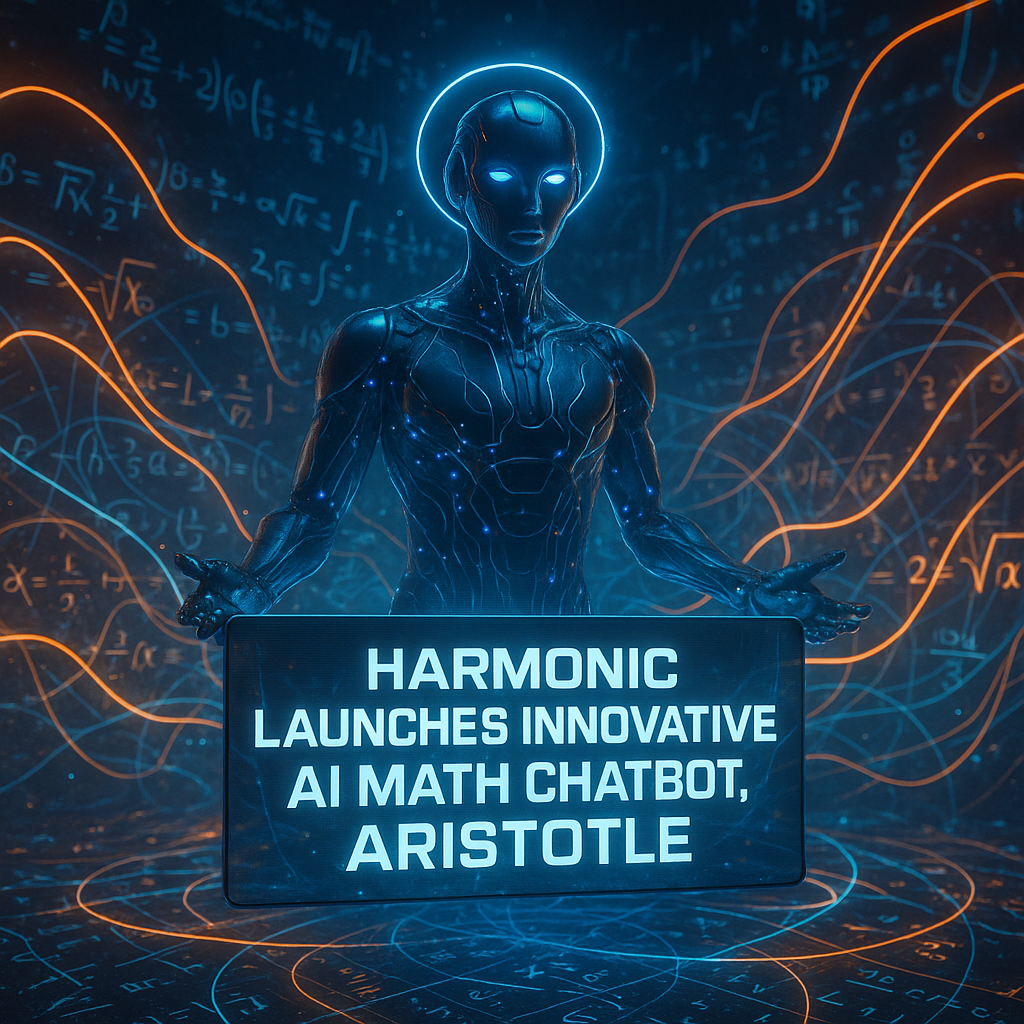
Harmonic, the Robinhood CEO’s AI math startup, launches an AI chatbot app
# Aristotle: The AI Math Chatbot Redefining Accuracy
In the ever-evolving landscape of artificial intelligence, the race to create models that can not only replicate but enhance human capabilities is fiercer than ever. Yet, amidst the thrill of technological adventurism, one domain stands as a consistent challenge: mathematics. In an era where AI’s reliability is often questioned due to issues like hallucination, a new player emerges with a proposition that’s not just bold but revolutionary. Enter Aristotle, the brainchild of Harmonic, an AI startup co-founded by Robinhood CEO Vlad Tenev.
## Breaking New Ground with Harmonic
The dream of creating an AI with “mathematical superintelligence” isn’t a mere whim—it reflects a broader vision of expanding AI’s role in domains that require precise reasoning and logic. Harmonic has recently made headlines with the beta release of Aristotle, an iOS and Android chatbot claiming to provide “hallucination-free” answers in mathematical reasoning. According to Tudor Achim, Harmonic’s CEO, “Aristotle is the first product available to people that does reasoning and formally verifies the output,” setting a new benchmark in AI-driven problem-solving.
Such a claim is not trivial. AI hallucinations—cases where models generate incorrect or nonsensical answers—are a notorious challenge in AI development. Yet Harmonic asserts that its model, through an algorithmic verification process separate from AI itself, can assure correctness. This approach resonates with the rigorous verification used in industries like aviation and medical devices, where precision can be a matter of life and death, thereby pushing Aristotle into a category of its own.
## The $100 Million Vote of Confidence
The AI community has not turned a blind eye to Harmonic’s ambition. Recently fortified by a $100 million Series B funding round led by the prestigious Kleiner Perkins, Harmonic has reached an $875 million valuation. This figure is emblematic of not just financial health but also the gravity and potential of Harmonic’s mission. Investors evidently see promise in Harmonic’s pursuit, recognizing that success in advanced mathematical reasoning could create ripples across various scientific fields, from physics to computer science.
## Aristotle in Action: The International Math Olympiad
If accolades were to replace words, Aristotle’s performance in the 2025 International Math Olympiad (IMO) speaks volumes. Achieving gold medal performance at the IMO—a feat akin to an undergrad acing the finals at a prestigious university—is no small triumph. This accomplishment is all the more impressive given that Harmonic conducted these evaluations through a formal, machine-readable test rather than informal, natural language processing.
## Learning from Aristotle’s Approach
With AI’s cognitive compass set towards verifiable accuracy, Harmonic’s strategic choice to utilize the open source programming language Lean stands out. Lean, known for its foundations in formal verification, ensures that Aristotle’s responses undergo rigorous scrutiny before reaching users. This entails a meticulous algorithmic process detached from AI’s whims—an innovative move that thrusts the focus on precision over efficiency.
This methodology offers profound implications for the fields of AI and education alike:
– **Reduced Error Rate**: By minimizing AI hallucinations, Aristotle can instill greater trust in AI-driven solutions, encouraging wider adoption across critical sectors.
– **Cross-field Applications**: Mathematical accuracy isn’t an isolated capability. This achievement hints at the potential for AI models to revolutionize areas like statistical analysis, data science, and even cryptography.
– **Educational Impact**: Providing students and educators with an AI tool they can rely on opens doors to new methods of learning and teaching, potentially transforming how complex concepts are conveyed.
## Closing Thoughts: The Future of AI in Mathematical Reasoning
Aristotle stands at the frontier of a new era—one where AI’s role isn’t just about mimicking human behavior but about expanding our intellectual capacity beyond its natural bounds. As Harmonic, with Aristotle, continues to trailblaze through uncharted territories of AI application, one must ponder: How will the assurance of mathematical accuracy by machines reshape educational landscapes or even redefine problem-solving across industries? The exploration of these concepts is not merely academic but harbors the promise of real-world transformation.
The journey Harmonic embarks on today with Aristotle could very well chart the course for AI’s role in the future. Have we finally reached a point where we can trust AI not just to perform calculations but to understand and verify them beyond what traditional technology can offer? Such questions challenge us to rethink the capabilities of AI and invite us to engage with these emerging possibilities.
As Aristotle invites us to imagine a future rich with mathematical precision and AI integration, the question remains—are we ready to fully embrace this new chapter where technology doesn’t just assist but understands and verifies with unerring accuracy?


